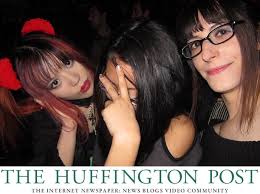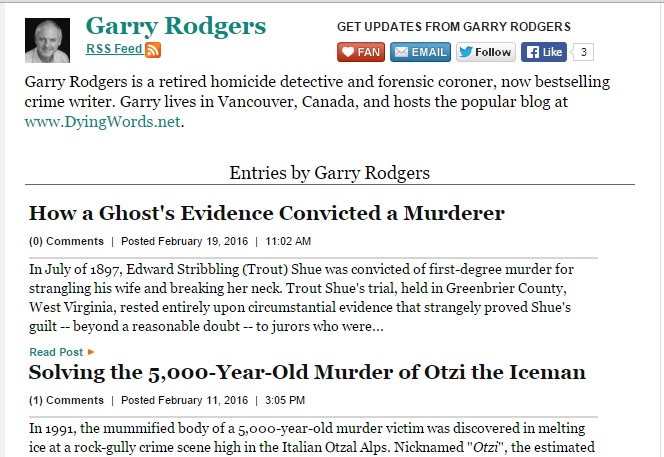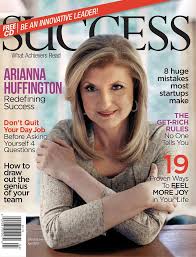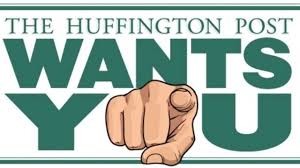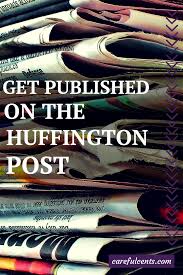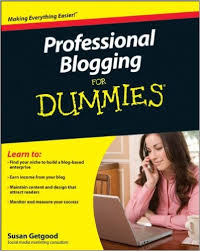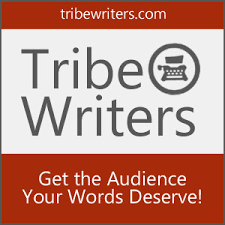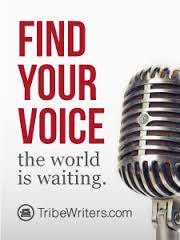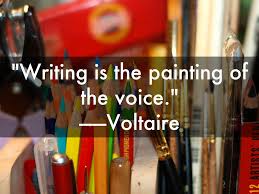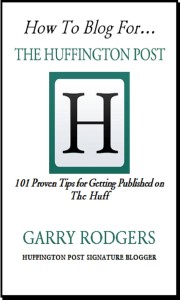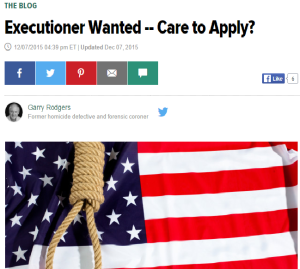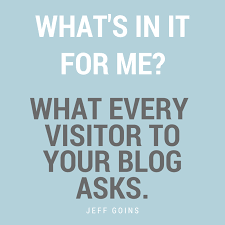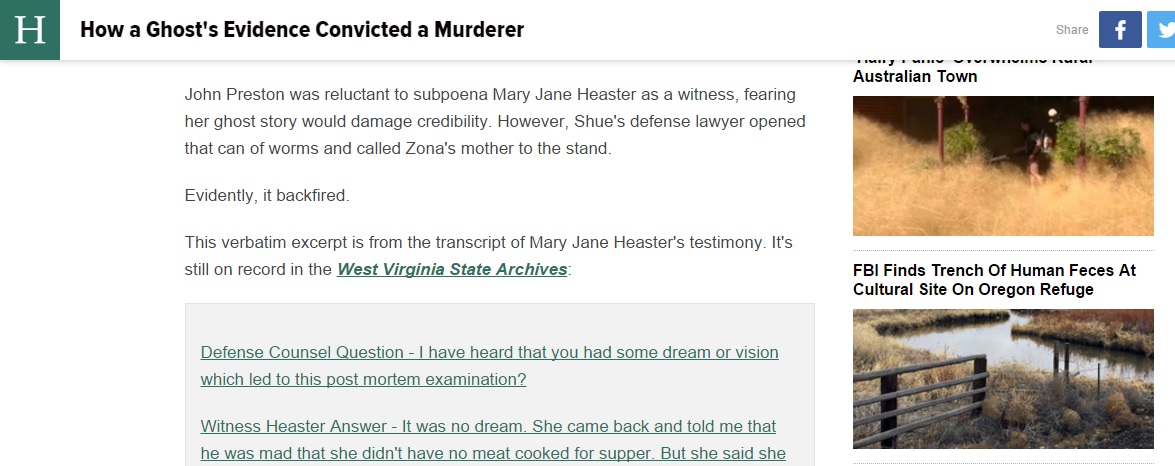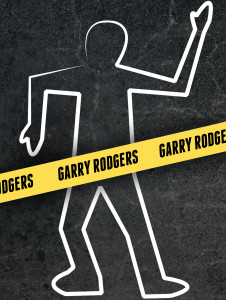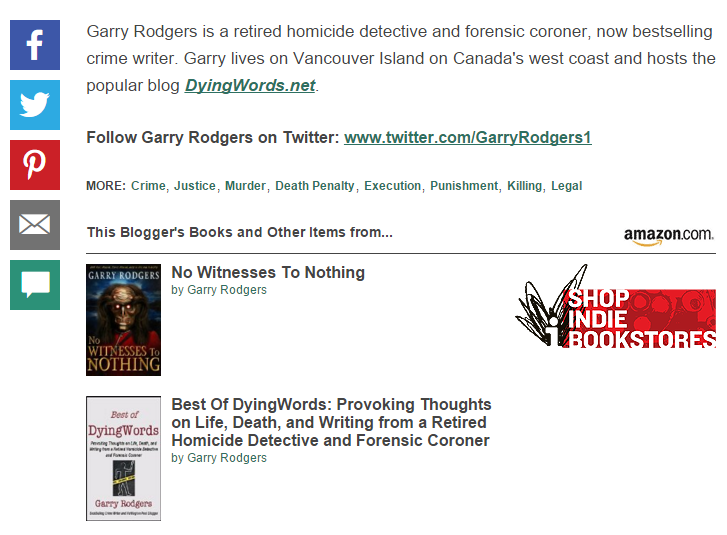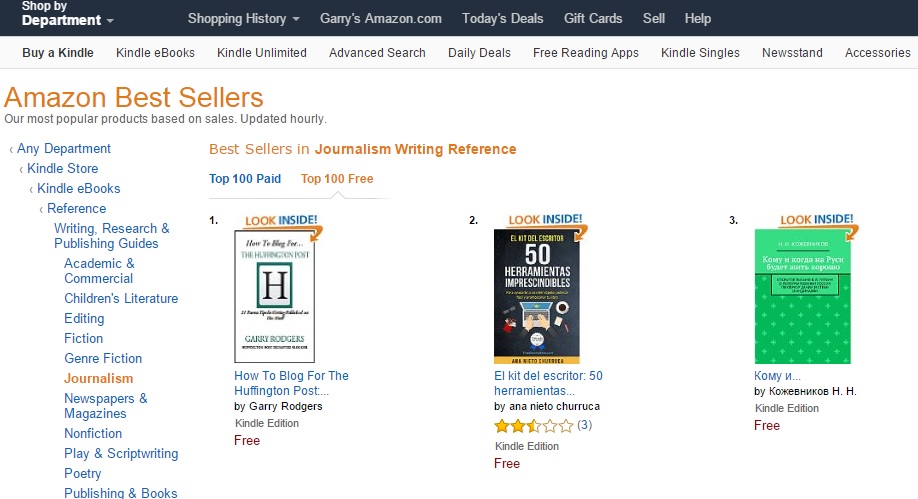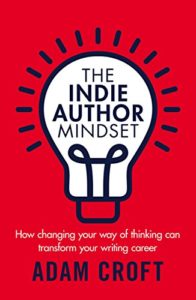 Adam Croft is one of the world’s most successful independent authors. As an indie author, Adam is a remarkable example of the mindset required to build and maintain a self-publishing enterprise that’s sold well over a million books. Adam Croft has the distinction of holding the overall best-selling author spot on all of Amazon. That’s regardless of being indie, traditional published or what book genre or category Adam competed with. In fact, on recent charts, Adam Croft was #1. JK Rowling was #2.
Adam Croft is one of the world’s most successful independent authors. As an indie author, Adam is a remarkable example of the mindset required to build and maintain a self-publishing enterprise that’s sold well over a million books. Adam Croft has the distinction of holding the overall best-selling author spot on all of Amazon. That’s regardless of being indie, traditional published or what book genre or category Adam competed with. In fact, on recent charts, Adam Croft was #1. JK Rowling was #2.
Adam Croft predominately writes and publishes profitable crime thrillers and mysteries in the fiction department. Now, Adam’s ventured into non-fiction with his new release The Indie Author Mindset — How Changing Your Way of Thinking Can Transform Your Writing Career. In it, Adam Croft selflessly shares his secrets of what it takes to develop the million-selling author mindset. And, on the DyingWords blog, Adam gives followers his personal insight into The Indie Author Mindset.
Welcome back to DyingWords, Adam. I have to say you’ve made milestones in your indie author career since we met online four years ago. Not to say you weren’t already a successful author back in 2014, but something extradordinary’s happened since. What changed in your life to hurdle you over the million-selling mark?
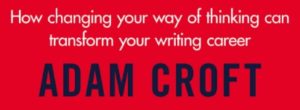 In 2014, I was successful in that my writing was just about paying the bills. In an industry where the average income for a full-time writer is around $10,000 a year, even covering the bills can rightly be considered successful, as you say.
In 2014, I was successful in that my writing was just about paying the bills. In an industry where the average income for a full-time writer is around $10,000 a year, even covering the bills can rightly be considered successful, as you say.
Mid-2015 I started to get serious about my writing. I’d been just about rumbling along for far too long and was desperate to take the next step and earn more money from my books. I discovered a few good non-fiction books around this time, as well as Mark Dawson’s Ads for Authors course. All of those things, plus my mind being in a good, receptive place to take on these new ideas, meant that everything came together for me at the right time and I had a huge shift in mindset—in the way I thought about my books, and that proved to be a great platform for moving forward in a huge way.
Adam, you open your book The Indie Author Mindset by discussing what self-publishing is and what self-publishing is not. Can you give us a recap on that?
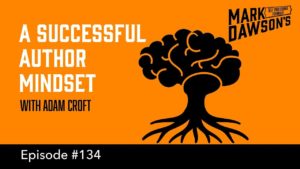 Yeah, that chapter is very different from the rest of the book, but it was something that needed saying. The whole purpose of The Indie Author Mindset was to try and address the base issues that most writers have—or certainly those writers who are struggling to make headway. Although the specific issues and symptoms are different, 95% of the time the actual core problem is mindset.
Yeah, that chapter is very different from the rest of the book, but it was something that needed saying. The whole purpose of The Indie Author Mindset was to try and address the base issues that most writers have—or certainly those writers who are struggling to make headway. Although the specific issues and symptoms are different, 95% of the time the actual core problem is mindset.
But there’s the other percentage of authors whose problems aren’t anything to do with that. I regularly get emails from writers who’ve paid someone to publish their books for them (vanity publishing, not self-publishing) and have handed over their rights to a company who, unsurprisingly, have done nothing for them. One writer told me he’d given over £20,000 (around $28,000 US) to a company to publish his book. He was stunned when I told him that a) self-publishing is free, and b) a publisher should be paying HIM £20,000 to publish his book.
 There’s just so much misinformation and rubbish out there. A lot of it is fairly harmless and will only result in authors wasting their time and effort—that’s the bulk of what I go into in the book. But there’s an undercurrent of these absolute scamsters who exist solely to exploit authors, and I was keen to get straight to the point on that to help as many writers as possible avoid them. I hate seeing people exploited, especially when it’s something they can easily do themselves for free, or let someone else do and get paid in return for it.
There’s just so much misinformation and rubbish out there. A lot of it is fairly harmless and will only result in authors wasting their time and effort—that’s the bulk of what I go into in the book. But there’s an undercurrent of these absolute scamsters who exist solely to exploit authors, and I was keen to get straight to the point on that to help as many writers as possible avoid them. I hate seeing people exploited, especially when it’s something they can easily do themselves for free, or let someone else do and get paid in return for it.
You speak a lot about professionalism. What’s your definition of professionalism, and how does this apply to an indie author’s mindset?
This is a question I ask myself in the book. The Oxford English Dictionary has two definitions: one refers to something being your main paid occupation, and the other states you only have to be competent and capable of doing said thing. Even the OED can’t come to a definition which doesn’t contract itself.

For me, professionalism is less about money and more about attitude—or mindset. Again, everything comes back to mindset. It’s about treating your writing like you would any other job, turning up on time and getting the work done. It’s about giving your books and your career the respect they deserve, and the respect you want your readers and potential readers to give them.
Many writers never cross the line between being hobbyists and dedicated full-time authors. What’s the difference between the mindset of part-timers and those who commit to making their writing a financial success?
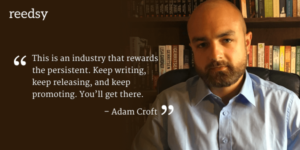 It’s the professional mindset you mentioned a moment ago. It’s quite literally a shift in attitude from ‘this is my hobby’ to ‘this is what I do’. Whatever your main job is (or was, if you don’t currently have one), you need to treat your writing in the same way.
It’s the professional mindset you mentioned a moment ago. It’s quite literally a shift in attitude from ‘this is my hobby’ to ‘this is what I do’. Whatever your main job is (or was, if you don’t currently have one), you need to treat your writing in the same way.
People who’ve run small businesses tend to ‘get’ this much more easily. I’m one of them, and I think having that background was a great help to me. It did take me five years to realise that I could—and absolutely should—take that attitude and experience into my writing career, though.
I like your quote in The Indie Author Mindset that says “Being a writer is not something that happens to you. It’s something you make happen.” Can you elaborate on how you made it happen?
As writers, we’re always told to make sure we write in the active, not passive voice. People do things—things don’t happen to them. The same goes for your writing career. You can’t expect success and good fortune to turn up on your doorstep. They won’t.

There’s a famous sportsperson—I don’t remember who—who was being interviewed and the interviewer mentioned the huge amount of luck and good fortune they’ve had in being so successful. Said sportsperson replied along the lines of ‘Yes, the harder I work the luckier I get’. No-one’s hanging around for you. You’ve got to jump on the train or get left behind.
Perfection. Many authors beat themselves to death with writes, re-writes and more re-writes while trying to achieve perfection. Is there such a thing as perfection, or does there come a point where close enough is good enough and you just ship it?
There is absolutely no possible way of attaining perfection in any form of art. Too many people beat themselves up over trying to attain the unattainable.
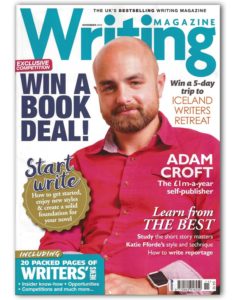 Objectively speaking, there is no such thing as a good book. Subjectively, of course, we all love some books and hate others. Same with art, TV shows, movies and just about any other form of art or creative endeavour. I hate Star Wars. Does that mean it’s a dreadful film franchise? No. I’m seriously outnumbered. It doesn’t appeal to me, but it clearly does to millions of others. It would be incredibly arrogant of me to call Star Wars objectively bad.
Objectively speaking, there is no such thing as a good book. Subjectively, of course, we all love some books and hate others. Same with art, TV shows, movies and just about any other form of art or creative endeavour. I hate Star Wars. Does that mean it’s a dreadful film franchise? No. I’m seriously outnumbered. It doesn’t appeal to me, but it clearly does to millions of others. It would be incredibly arrogant of me to call Star Wars objectively bad.
I can’t stand Shakespeare, either. But again, I realise it’s me who’s missing something. I wouldn’t be so arrogant as to assume that everyone who likes Shakespeare is deluded and mad (even though they are).
The point is that for every piece of creative work, there is someone who thinks it’s absolutely perfect, someone who thinks it’s the most dreadful thing ever created and a million other people somewhere on the spectrum between. It’s irrelevant which one you are—you are not the moral arbiter of good art. No-one is. So just get the book written, get it out there, accept that there’ll be a whole spectrum of lovers and haters and move on with the next book. Anything else is self-defeating and likely to eat you up from within.
Production. What’s your process for being productive and proficient in both creativity and business?
I don’t really have much choice. I’ve got a family to feed and an ever-increasing inbox. I’ve just got to sit down and get on with it. No-one else is going to do it for me.

Put it this way: 95% of writers procrastinate, dither and are generally quite unproductive. If you can sit down and bash out a thousand or two thousand words a day, clear your inbox and have a good stab at your to-do list, you’re easily in the top few percent of the industry. Sooner or later that will put you in an extremely fortunate position.
Dealing with doubt. I think all writers—myself for sure—encounter self-doubt with their work. Do you buy into the so-called “imposter syndrome”, and what should a writer do about overcoming self-doubt?
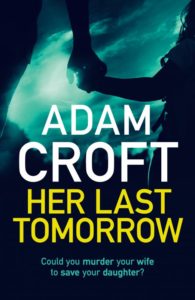 Absolutely I do. I have it myself. The more success I have, the surer I am that at some point someone’s going to find out I’m a massive fraud.
Absolutely I do. I have it myself. The more success I have, the surer I am that at some point someone’s going to find out I’m a massive fraud.
I’ve thought about this a lot, and I think the only real way to combat it is to accept that it’s a part of you, but don’t let it win. Like any bully, if you ignore it it’ll go away. Don’t feed the trolls, as they say.
Some of the most successful writers I know are the ones plagued with the most self-doubt. Self-doubt has nothing to do with success, money or achievement. It will ALWAYS be there. So accept it, refuse to give in to it and move forward regardless.
You’ve got a section in The Indie Author Mindset about the power of others. What’s your view on who to listen to, and who not to listen to?
Quite simply, it’s a case of doing a bit of research. There are hundreds of websites, books and resources out there. Lots of people somehow feel qualified to teach others how to write and publish despite having only written one book and sold a few hundred copies.

Personally, I want to learn from people who’ve been there and done it, not from people who are barely any further along the line than me. There are too many people who either follow the old adage of ‘keeping one lesson ahead of the pupil’ or, worse, make things up or hash together strategies based on what they assume should work, rather than experimenting to find out what does work.
As an indie author/self-publisher, you obviously can’t do it all yourself. What work do you personally take on? What do you delegate or sub-out?
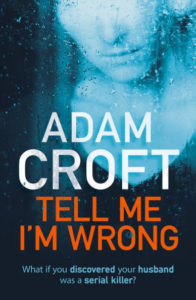 The answer to the first part of that question is ‘too much’. My wife works with me and tends to handle the business side of things. She does the bookkeeping, spreadsheet tracking, background stuff for promos and all of the ‘back office’ stuff. Anything front-facing is me. I reply to all reader emails personally, help other authors, participate in online discussions, set up and run my ads and marketing activities—and occasionally get time to write some books.
The answer to the first part of that question is ‘too much’. My wife works with me and tends to handle the business side of things. She does the bookkeeping, spreadsheet tracking, background stuff for promos and all of the ‘back office’ stuff. Anything front-facing is me. I reply to all reader emails personally, help other authors, participate in online discussions, set up and run my ads and marketing activities—and occasionally get time to write some books.
Do you ever become overwhelmed? With so much on your professional and personal plate, how do you avoid burnout? After all, you have a young family as well as a thriving business.
All the time. But I also realise that won’t do me any good. At the moment I’m two-thirds of the way through my next psychological thriller, which I hope will be even more successful than HER LAST TOMORROW and TELL ME I’M WRONG. I’ve got high hopes for it and am writing 2,000 words a day towards it.
I’m also battling against an inbox which I can’t ever get below 100+ unread emails, producing a weekly podcast, directing a theatre production for November and doing 2-3 podcast or radio interviews a day. 16-hour days are perfectly normal for me at the moment. The only saving grace is that my wife and I both work from home, so I can at least be in the same house as my son, even if I don’t get to spend a fraction of the amount of time with him as I’d like.
I really admire and respect your visionary mindset, Adam. Can you share your views about short-term vs long-term thinking?
Put simply, it’s all about long-term thinking. We’re often blinkered and worried about daily sales or instant impact. Business doesn’t work like that. For instance, I have a couple of books that earn me maybe £5-6 a day. Certainly not life-changing. But they do that every day and have done for eight years or so. That £5-6 a day is now almost £20,000, and they still earn money every day, despite me having done no work on them for eight years.

If you expect instant (or even quick) results in this business, you’re going to be disappointed. There’s no other way of putting it. Even my ‘overnight success’ was my ninth book and my sixth year of publishing.
Let’s talk about the dreaded marketing end of being an indie author. I realize The Indie Author Mindset is really about the mental end of being a commercial writing success rather than the production end, but can you give us a basic formula for what works in today’s book distribution and marketing?
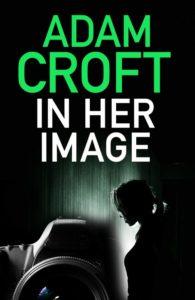 No, because there isn’t one. Different things work for different people. There are far too many variables to say that any one thing will work for everyone. That’s why you need to find an approach which works for you. It’s also why I didn’t go into any specifics about marketing strategies or tactics in The Indie Author Mindset. It would be disingenuous of me to try and sell a book off the back of things which I know won’t work for 90% of authors.
No, because there isn’t one. Different things work for different people. There are far too many variables to say that any one thing will work for everyone. That’s why you need to find an approach which works for you. It’s also why I didn’t go into any specifics about marketing strategies or tactics in The Indie Author Mindset. It would be disingenuous of me to try and sell a book off the back of things which I know won’t work for 90% of authors.
Your big run-away novel was Her Last Tomorrow followed by Only The Truth, In Her Image and Tell Me I’m Wrong. These stories have been huge commercial successes, and I can only imagine what’s coming next. Was there a particular catalyst that sent these books to the top? If so, what was the tipping point?
My two biggest sellers to date are HER LAST TOMORROW and TELL ME I’M WRONG. The latter overtook HER LAST TOMORROW as my biggest-selling book a few weeks ago, after only six months on sale.
Both books are domestic psychological thrillers with extremely compelling hooks (Could you murder your wife to save your daughter?/What if you discovered your husband was a serial killer?). That approach works for me. It won’t work for everyone. I know lots of people have tried to emulate it and use the same strategy, and it doesn’t work for them. Their audience might not respond to that sort of hook. Mine does. I think there’s a more specific recipe and set of reasons behind it, and I’m going to try and replicate it with my next book. If I’m right, that book should be a huge success too. I’m putting my cards on the table here! Fingers crossed…
In The Indie Author Mindset, you talk about three inseparable and crucial parts to commercial writing success—the author, the publisher and the businessperson. Do you mind elaborating on these important parts of mindset?
When you’re an indie author, you need to wear many hats. Those are the main three, but I also find myself having to be a strategist, broadcaster, customer services assistant and many other different roles.

Being flexible and adaptable is key—not only to having to switch between different personas and job titles, but in order to keep up with a fast-moving industry and ensure you’re able to adapt to the changing landscape.
Besides reading, re-reading and making notes on The Indie Author Mindset, I also listened to your interview on Mark Dawson’s Self Publishing podcast. You make an extremely important distinction between business expenses and business investment. Can you talk a bit about this, as well as how you parlay profits into investments?
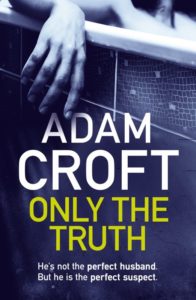 Too often we think about things as expenses. I hear so many authors saying how they went for a $50 book cover because $400 was too much to spend. They’re missing the point entirely. That $50 cover will be nowhere near as good as the $400 one. Everyone knows that. Even they know that. It might be eight times cheaper, but I can guarantee their sales will be eight times lower than they would be with the better cover. This is an investment, not an expense. Putting the money in now will reap rewards for years to come, and you’ll make your investment back many times over.
Too often we think about things as expenses. I hear so many authors saying how they went for a $50 book cover because $400 was too much to spend. They’re missing the point entirely. That $50 cover will be nowhere near as good as the $400 one. Everyone knows that. Even they know that. It might be eight times cheaper, but I can guarantee their sales will be eight times lower than they would be with the better cover. This is an investment, not an expense. Putting the money in now will reap rewards for years to come, and you’ll make your investment back many times over.
Too many authors expect to be able to do things on a shoestring and as cheaply as possible, which shows an extraordinary lack of respect for themselves, their books and their readers. Why should a reader take a chance on a new author and part with their hard-earned money when even the author herself won’t put her money where her mouth is?
You also touch on marketing/advertising, publishing wide and developing multiple income streams in The Indie Author Mindset. I won’t ask you to detail what works for you, Adam. Rather, I urge all authors to read your new book and absorb your wisdom. However, can you say a few words about branding?
This is another aspect of marketing. We get obsessed about needing a direct and measurable profit. But marketing and advertising just don’t work like that. No other industry or business expects to measure a direct ROI on advertising spend. It goes wider than that.

Do you think Coca Cola run a TV ad then look at how many bottles of Coke they sold directly off the back of it? Of course they don’t. It’s about branding, having their name seen rather than their competitors’. It’s about keeping in the minds of their potential customers, so next time they’re ready to buy a bottle of soft drink it’s them they choose.
Just an observation here—even though your new non-fiction release is called The Indie Author Mindset, the mass of information inside seems applicable to traditionally published writers as well. What will traditionally published authors learn?
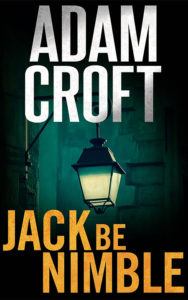 It will, because the lines are now blurred more than ever. Even traditionally published authors are expected to do their own marketing and PR. No-one’s immune from that, so trad’s no longer the ‘easy’ route it once was. Trust me, I’ve been there.
It will, because the lines are now blurred more than ever. Even traditionally published authors are expected to do their own marketing and PR. No-one’s immune from that, so trad’s no longer the ‘easy’ route it once was. Trust me, I’ve been there.
I think this just highlights the fact that the difference between indie and trad publishing is nowhere near as big as people think. It’s the same machine, the same monster. As an indie author, you aren’t an author without a publisher—you’re an author who IS the publisher. The only difference in trad is that the two are separated a little more, although, as I mentioned above, even that small distinction is quickly disappearing.
I can’t let you go without expanding on how important it is for commercial authors to track sales and distribution data. What do you recommend writers do in order to know how we’re performing and formulate a marketing plan?
Track everything. Use AK Report or Book Report to track your KDP data, get the rest directly from the distributors. Track your advertising spend. Look for trends and interesting stuff in the data. You might be surprised by what works.

Test everything. Again, you’ll be amazed and what works and what doesn’t work. Just because you like a graphic or an image or a piece of copy, your audience won’t necessarily take to it at all. In fact, they almost certainly won’t. My best ads and best-performing graphics have all been ones I’ve hated. The ones I like don’t do well. I clearly have very different tastes from my audience, and that’s the same for most writers. Separate yourself from the work and do what readers want, not what you want. It’s rare the two are the same.
Finally, Adam, over the years you’ve met and interacted with many writers. If you had one piece of advice to leave us with—based on your experience and success—what would it be?
I always give six words in this situation: Arse on chair, fingers on keyboard.
Of all the marketing strategies and techniques, of all the ways you can spend your day trying to boost your book sales, the only thing guaranteed to move your career forward and increase your sales is writing more books.
* * *
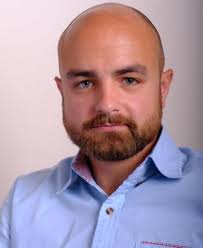 My sincere thanks to indie author and million-selling writer Adam Croft for his time and generosity in stopping by DyingWords to talk about his new release, The Indie Author Mindset. This concise and easy-to-absorb book was the kick-in-the-arse motivation I needed at this point in my writing career. It’s re-affirmed that hard work, dedication and positive mindset are the key principles behind making commercial writing lucrative and mentally rewarding. It also helps to have a good heap of talent like Adam Croft has. Here’s my Amazon review of The Indie Author Mindset.
My sincere thanks to indie author and million-selling writer Adam Croft for his time and generosity in stopping by DyingWords to talk about his new release, The Indie Author Mindset. This concise and easy-to-absorb book was the kick-in-the-arse motivation I needed at this point in my writing career. It’s re-affirmed that hard work, dedication and positive mindset are the key principles behind making commercial writing lucrative and mentally rewarding. It also helps to have a good heap of talent like Adam Croft has. Here’s my Amazon review of The Indie Author Mindset.

Amazon Description for The Indie Author Mindset
Do you want to sell more books and earn a good living from your fiction?
Discover how to change your way of thinking and revolutionize your writing career.
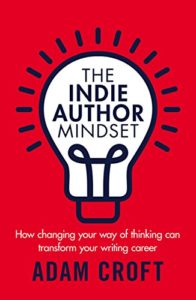 Are you struggling to take your author career on to the next stage? Do you wish you could sell huge numbers of books and make a good income for you and your family? Before he learned to change his mindset, Adam Croft’s fiction books earned him around $30 a day. But, after developing the indie author mindset, he was earning $3,500 a day within a matter of weeks.
Are you struggling to take your author career on to the next stage? Do you wish you could sell huge numbers of books and make a good income for you and your family? Before he learned to change his mindset, Adam Croft’s fiction books earned him around $30 a day. But, after developing the indie author mindset, he was earning $3,500 a day within a matter of weeks.
The Indie Author Mindset shows you how simply changing your way of thinking about your writing business can revolutionize your career. Using Adam’s personal experiences and examples, you’ll be able to think differently about the business side of your writing career and lay down the foundations for long-term success.
In The Indie Author Mindset, you’ll discover:
How to decide who to listen to — and who not to listen to
- How to unlock the power of residuals
- How to create more than half a dozen income streams from one book
- Lessons and advice from Bryan Cohen, David Gaughran, Brian Meeks and Mark Dawson
- Why almost every writer misunderstands profit and is doing advertising wrong
- And much, much more!
This life-changing book is the motivational kick-up-the-backside all authors need. If you like a non-fiction book with a personal touch, practical tips you can apply every day and all the motivation you need to kick your career on to the next stage, The Indie Author Mindset is for you.
Adam Croft’s Biography
With more than 1.5 million books sold to date, Adam Croft is one of the most successful independently published authors in the world, and one of the biggest selling authors of the past few years.
 His 2015 worldwide bestseller Her Last Tomorrow sold more than 150,000 copies across all platforms and became one of the bestselling books of the year, reaching the top 10 in the overall Amazon Kindle chart and peaking at number 12 in the combined paperback fiction and non-fiction chart.
His 2015 worldwide bestseller Her Last Tomorrow sold more than 150,000 copies across all platforms and became one of the bestselling books of the year, reaching the top 10 in the overall Amazon Kindle chart and peaking at number 12 in the combined paperback fiction and non-fiction chart.
In 2016, the Knight & Culverhouse Box Set reached storewide number 1 in Canada, knocking J.K. Rowling’s Harry Potter and the Cursed Child off the top spot only weeks after Her Last Tomorrow was also number 1 in Canada.
During the summer of 2016, two of Adam’s books hit the USA Today bestseller list only weeks apart, making them two of the most-purchased books in the United States over the summer.
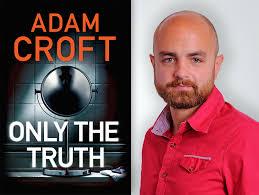 In February 2017, Only The Truth became a worldwide bestseller, reaching storewide number 1 at both Amazon US and Amazon UK, making it the bestselling book in the world at that moment in time. The same day, Amazon’s overall Author Rankings placed Adam as the most widely read author in the world, with J.K. Rowling in second place.
In February 2017, Only The Truth became a worldwide bestseller, reaching storewide number 1 at both Amazon US and Amazon UK, making it the bestselling book in the world at that moment in time. The same day, Amazon’s overall Author Rankings placed Adam as the most widely read author in the world, with J.K. Rowling in second place.
Adam has been featured on BBC television, BBC Radio 4, BBC Radio 5 Live, the BBC World Service, The Guardian, The Huffington Post, The Bookseller and a number of other news and media outlets.
In March 2018, Adam was conferred as an Honorary Doctor of Arts, the highest academic qualification in the UK, by the University of Bedfordshire in recognition of his achievements.
* * *
Visit Adam Croft’s Website at AdamCroft.net
Connect with Adam Croft on Facebook
Follow Adam Croft on Twitter
Here are links to two other Adam Croft posts on DyingWords.net:
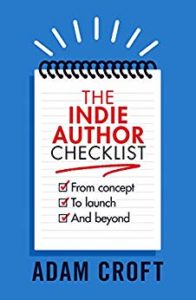 Update: February 2019 – Adam’s Croft’s sequel to The Indie Author Mindset titled The Indie Author Checklist is now available on all internet book outlets. It’s a must-read for anyone serious about their writing career. Available in Ebook, print & audio. I highly recommend it!
Update: February 2019 – Adam’s Croft’s sequel to The Indie Author Mindset titled The Indie Author Checklist is now available on all internet book outlets. It’s a must-read for anyone serious about their writing career. Available in Ebook, print & audio. I highly recommend it!
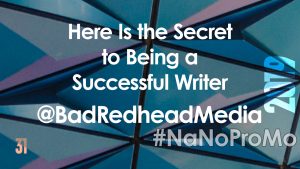 Regardless of how you publish your books, articles, or blog posts, the secret to being a successful writer is not anything pie-in-the-sky or full of inspirational goo-gah. Besides, I’m not the kind of person to spray glittery sunshine up your you-know-what, so here’s the real deal. It’s the big secret. Ready? Grab your pen.
Regardless of how you publish your books, articles, or blog posts, the secret to being a successful writer is not anything pie-in-the-sky or full of inspirational goo-gah. Besides, I’m not the kind of person to spray glittery sunshine up your you-know-what, so here’s the real deal. It’s the big secret. Ready? Grab your pen. I’ve worked with writers in all kinds of ways since hmmm, gosh, 2009-ish. Ten years of observing that unique species of human we refer to as, writer. I’m a writer myself (six books released so far , been in a few anthologies, two new books on deck for this year), so I fully comprehend the challenges of balancing writing, marketing, the day job, real life, chronic pain, mental health, and single parenting.
I’ve worked with writers in all kinds of ways since hmmm, gosh, 2009-ish. Ten years of observing that unique species of human we refer to as, writer. I’m a writer myself (six books released so far , been in a few anthologies, two new books on deck for this year), so I fully comprehend the challenges of balancing writing, marketing, the day job, real life, chronic pain, mental health, and single parenting. In fact, I so related to that panicky, ‘Where do I even start?” feeling I experienced with my first book back in 2012, that I created an entire month last year (year two is happening right now! and every May going forward if I decide to continue this exhaustive effort) where I’ve wrangled publishing experts this entire month of May to generously donate books, guides, and consultations, and yet shockingly (she says not shocked), few writers are taking advantage of it.
In fact, I so related to that panicky, ‘Where do I even start?” feeling I experienced with my first book back in 2012, that I created an entire month last year (year two is happening right now! and every May going forward if I decide to continue this exhaustive effort) where I’ve wrangled publishing experts this entire month of May to generously donate books, guides, and consultations, and yet shockingly (she says not shocked), few writers are taking advantage of it. It’s not that I’m not writing. I’m here, aren’t I? I also write for my own author blog (RachelintheOC.com as well as on Medium, which are important parts of my author marketing and business marketing. I have those two manuscripts mentioned above on my desktop: one is in edits, and the other is in draft. I also keep a journal, a planner, and a book just for creative notes and ideas.
It’s not that I’m not writing. I’m here, aren’t I? I also write for my own author blog (RachelintheOC.com as well as on Medium, which are important parts of my author marketing and business marketing. I have those two manuscripts mentioned above on my desktop: one is in edits, and the other is in draft. I also keep a journal, a planner, and a book just for creative notes and ideas. It feels like this: it’s a big mountain, full of mud. It’s raining. Hard. I’m carrying this heavy weight. But I’ve got this! It’s just that some days it’s just…so exhausting. Or I have a migraine. Or I’m running my kids around (single mom). Or I’ve got client deadlines (solopreneur).
It feels like this: it’s a big mountain, full of mud. It’s raining. Hard. I’m carrying this heavy weight. But I’ve got this! It’s just that some days it’s just…so exhausting. Or I have a migraine. Or I’m running my kids around (single mom). Or I’ve got client deadlines (solopreneur).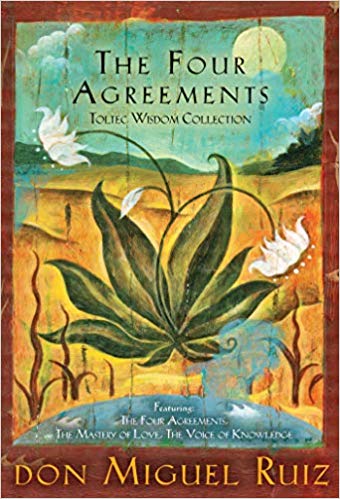 As a survivor of childhood sexual abuse, I deal with many stumbling blocks: anxiety, depression, chronic pain. There are days where all I can do is the bare minimum for my business, kiss my kids, and that’s it. And that’s okay. Big fan of The Four Agreements: always do your best, and if your best is just getting out of bed that day, okay. I Scarlett O’Hara that bitch: tomorrow is another day.
As a survivor of childhood sexual abuse, I deal with many stumbling blocks: anxiety, depression, chronic pain. There are days where all I can do is the bare minimum for my business, kiss my kids, and that’s it. And that’s okay. Big fan of The Four Agreements: always do your best, and if your best is just getting out of bed that day, okay. I Scarlett O’Hara that bitch: tomorrow is another day. Rachel Thompson is the author of the award-winning, bestselling Broken Places (one of IndieReader’s “Best of 2015” top books and 2015 Honorable Mention Winner in the Los Angeles and San Francisco Book Festivals), and the multi-award-winning Broken Pieces, as well as two additional humor books, A Walk In The Snark and Mancode: Exposed.
Rachel Thompson is the author of the award-winning, bestselling Broken Places (one of IndieReader’s “Best of 2015” top books and 2015 Honorable Mention Winner in the Los Angeles and San Francisco Book Festivals), and the multi-award-winning Broken Pieces, as well as two additional humor books, A Walk In The Snark and Mancode: Exposed.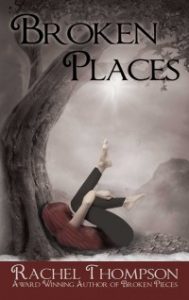 Not just an advocate for sexual abuse survivors, Rachel is the creator and founder of the hashtag phenomenon #MondayBlogs, the weekly live Twitter chat, #SexAbuseChat, co-hosted with C Streetlights and Judith Staff (every Tuesday, 6pm pst/9pm est), and #BookMarketingChat (every Wednesday 6pm pst/9pm est), helping authors learn all kinds of great tips to market their books!
Not just an advocate for sexual abuse survivors, Rachel is the creator and founder of the hashtag phenomenon #MondayBlogs, the weekly live Twitter chat, #SexAbuseChat, co-hosted with C Streetlights and Judith Staff (every Tuesday, 6pm pst/9pm est), and #BookMarketingChat (every Wednesday 6pm pst/9pm est), helping authors learn all kinds of great tips to market their books!




























